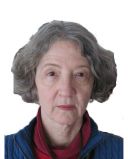
Psychosis
What It's Really Like to Live With Schizophrenia
Law professor and MacArthur winner Elyn Saks describes her illness.
Posted October 11, 2017
Ellyn Saks is an impressive person: a professor of law, psychology, and psychiatry and the behavioral sciences at the University of Southern California Gould Law School and a MacArthur Fellowship winner, and all the more impressive for achieving so much while living with schizophrenia, something few people are able to do. Among those who are, even fewer are willing to openly acknowledge mental illness, since most sensibly fear the stigma that would complicate their lives if they did. In The Center Cannot Hold, Saks tells the story of her life and opens a window onto the experience of schizophrenia.
Saks traces her earliest symptoms to childhood. At the age of 8 or 9, she first experienced a sense of coming apart triggered by a scolding from her father: “The ‘me’ becomes a haze, the solid center from which one experiences reality breaks up like a bad radio signal…No core holds things together...” Hence her title.
Despite some symptoms during adolescence and high school, it wasn’t until college that she began to deteriorate. “Schizophrenia rolls in like a slow fog…” she says. (Here she’s describing gradual rather than sudden onset.) Despite her illness, she had a stellar academic career, graduating as class valedictorian from Vanderbilt College, earning a graduate degree in philosophy at Oxford University, and a law degree at Yale, despite a series of breakdowns and hospitalizations and much time devoted to talk therapy.

At Oxford, her obvious weight loss, depression, and mutterings to herself caused a friend to encourage her to see a doctor. She thought: “I’m not sick. I’m just a bad, defective, stupid, and evil person.” But she realized suicide was a possibility and that persuaded her to seek help. In the hospital “I began…receiving commands…issued by some sort of beings… shapeless, powerful beings that controlled me with thoughts (not voices)…” "Walk through the tunnels [under the building] and repent…You are evil.” Another command “was to hurt myself...I burned myself with cigarettes, lighters, electric heaters, boiling water…I was convinced that I would die soon.” Finally, after months of ineffective treatment and worsening illness, a sensible and humane doctor prescribed returning to Oxford, to the intellectual work that she loved. He also sent her to a psychoanalyst, a woman she saw several times a week and found enormously helpful, caring, and insightful as she resumed her studies and completed her degree.
At Yale Law School she liked the psychiatrist at the Student Health Services. But “within minutes of meeting her, I decided that I needed to conduct my end of our conversation from inside her small coat closet.” When the psychiatrist succeeded in getting her out, she sat down and said, “’There’s a war in China…One needs to be heavily armed. Are you God? Have you ever killed anyone?’”
When she went to see her professor for an extension, she told him, “’The memo materials have been infiltrated. They’re jumping around. I used to be good at the broad jump because I’m tall. I fall. People put things in and then say it’s my fault. I used to be God, but I got demoted.’ I begin to sing my little Florida juice jingle, twirling around the office….”
Soon she was in the hospital, this time in restraints. “Despite being given dose after dose of Trilafon, I was attacked by my delusions, which swarmed thick and fast. The creatures in the sky wanted to kill me; the creatures here on the ground were on the attack. No one protected me…And as the night wore on, my psychosis deepened. I sang, I shouted, I cried out in terror…And I struggled against the restraints until my back ached and my skin was raw.”
First in one hospital, then another, Saks lost the academic year. The next fall she took up her studies again, now with the support of a psychiatrist, she would see four times a week for her years at Yale. This schedule of talk therapy continued with another doctor in California, where she took a position on the faculty of the Gould Law School.
Despite her breakdowns, and despite short-lived psychotic thoughts that flared up, and still emerge when she is under stress, it took many years for Saks to accept that she had a chronic and severe mental illness that would require her to take medication and continue talk therapy for the rest of her life. Over and again she persuaded herself she could reduce her dose of medication, and then found herself having paranoid and psychotic thoughts.
Describing her earliest experiences of losing her center, she says, “I intuitively knew this was something I needed to hide…That intuition…as well as other masking skills that I learned…came to be central components of my experience of schizophrenia.” She later adds, “One of the worst aspects of schizophrenia is the profound isolation—the constant awareness that you’re different, some sort of alien, not really human.” Keeping up the pretense, as she experienced it, that she was like other people only reinforced her sense of isolation. I hope that, since writing this book and coming out hiding, Saks no longer feels so isolated.
In a TED Talk, Saks gives three factors that enabled her success. First, the excellent treatment she has had, including almost continuous psychoanalytic type therapy since her first break, along with medication. Second, friends and family who have provided support. As you read her story, you can’t help but be impressed with her ability to maintain close friendships, despite her paranoia and sometimes psychosis. And third, a supportive work environment at the Gould Law School of the University of Southern California. The reader of her book will feel that her own extraordinary intelligence, hard work, and determination should also be credited.
References
Saks, Elyn R. The Center Cannot Hold. New York, Hyperion, 2007.



